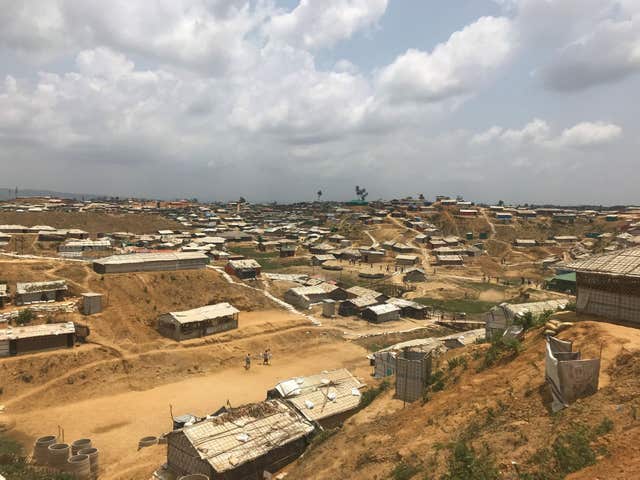The United Nations’ top court has ordered Burma to take all measures in its power to prevent genocide against the Rohingya.
The court’s president, Judge Abdulqawi Ahmed Yusuf, said the International Court of Justice “is of the opinion that the Rohingya in Burma remain extremely vulnerable”.

At the end of an hour-long sitting in the court’s wood-panelled Great Hall of Justice, judges also ordered Burma to report to them in four months on what measures the country has taken to comply with the order and then to report every six months as the case moves slowly through the world court.
Hundreds of thousands of mainly Muslim Rohingya refugees have fled Burma, often to Bangladesh, amid a military onslaught.
Rights activists immediately welcomed the unanimous decision.
“The ICJ order to Burma to take concrete steps to prevent the genocide of the Rohingya is a landmark step to stop further atrocities against one of the world’s most persecuted people,” said Param-Preet Singh, associate international justice director of New York-based Human Rights Watch.
“Concerned governments and UN bodies should now weigh in to ensure that the order is enforced as the genocide case moves forward.”
PRESS RELEASE: the #ICJ indicates provisional measures in order to preserve certain rights claimed by The Gambia for the protection of the Rohingya in Myanmar in the case of #TheGambia v. #Myanmar https://t.co/zeSwnY6mqd pic.twitter.com/GM66BzfKOL
— CIJ_ICJ (@CIJ_ICJ) January 23, 2020
The world court order for what it calls provisional measures came in a case brought by the African nation of Gambia on behalf of an organisation of Muslim nations that accuses Burma of genocide in its crackdown on the Rohingya.
At public hearings last month, lawyers for Burma’s accusers used maps, satellite images and graphic photos to detail what they call a campaign of murder, rape and destruction amounting to genocide perpetrated by Burma’s military.
The hearings drew intense scrutiny as Burma’s former pro-democracy figure Aung San Suu Kyi defended the campaign by military forces that once held her under house arrest for 15 years.
Ms Suu Kyi, who as Burma’s state counsellor heads the government, was awarded the 1991 Nobel Peace Prize for championing democracy and human rights under Burma’s then-ruling junta.

Buddhist-majority Burma has long considered the Rohingya to be “Bengalis” from Bangladesh even though their families have lived in the country for generations.
Nearly all have been denied citizenship since 1982, effectively rendering them stateless.
They are also denied freedom of movement and other basic rights.
In August 2017, Burma’s military launched what it called a clearance campaign in northern Rakhine state in response to an attack by a Rohingya insurgent group.

Ms Suu Kyi told world court judges in December that the exodus was a tragic consequence of the military’s response to “coordinated and comprehensive armed attacks” by Rohingya insurgents.
She urged judges to drop the genocide case and allow Burma’s military justice system to deal with any abuses.
Thursday’s ruling came two days after an independent commission established by Burma’s government concluded there are reasons to believe security forces committed war crimes in counter-insurgency operations against the Rohingya, but that there is no evidence supporting charges that genocide was planned or carried out.
The report drew criticism from rights activists.
Pending release of the full report, Phil Robertson, Human Rights Watch’s deputy Asia director, said the panel’s findings were “what would have been expected from a non-transparent investigation by a politically skewed set of commissioners working closely with the Burma government”.
At December’s public hearings, Paul Reichler, a lawyer for Gambia, cited a UN fact-finding mission report at hearings last month that said military “clearance operations” in Burma’s northern Rakhine state spared nobody.

Gambia’s justice minister Aboubacarr Tambadou urged the world court to act immediately and “tell Burma to stop these senseless killings, to stop these acts of barbarity that continue to shock our collective conscience, to stop this genocide of its own people”.
The world court’s orders are legally binding but it relies on the United Nations to add political pressure, if necessary, to enforce them.
The court is expected to take years to issue a final ruling in the case.






